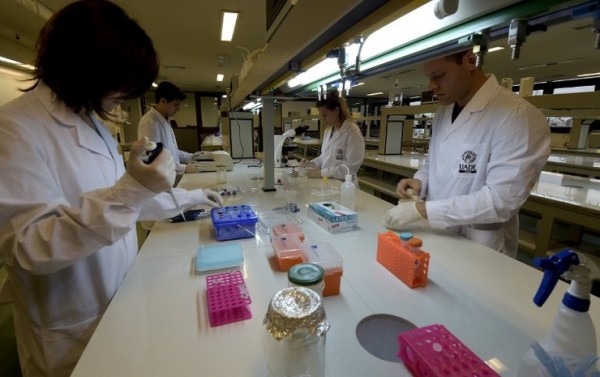RIO DE JANEIRO – Nobel prize week can incite uncomfortable soul-seeking at colleges in Latin America, which has created moderately few victors in the sciences – a side effect, masters say, of the locale’s battles in advanced education.
Latin America’s colleges are regularly packed, underfunded foundations where most educators don’t have doctoral degrees and numerous understudies wind up dropping out.
In the wake of expanding interest in advanced education in the course of recent decades, the area has multiplied enlistment and expanded its generation of experimental papers more than six-fold, to 4.3 percent of world yield.
“Yet the awful news is that the amount has not so much been joined by quality,” said Jorge Balan, an Argentine social scientist and advanced education expert at Columbia University in New York.

“We have a bigger number of researchers than previously, all the more full-time college employees, staff which is better arranged, and their creation has expanded. In any case the nature of exploration is not as great in global terms.”
Latin America’s colleges are generally truant from world rankings, and those that do make the cut come in a long way from the top.
In the latest Times Higher Education rankings, no Latin American college made the main 200.
The best positioned, the University of Sao Paulo in Brazil, made the main 225 however came in behind foundations in other developing markets like Russia, South Africa and Turkey.
Furthermore few Latin American analysts have picked up worldwide distinguishment at the largest amounts.
Latin Americans have won the Nobel peace and writing prizes 14 times, however only seven times in the fields of material science, science, medication and matters of trade and profit – a dry season that has proceeded at this current year’s Nobels, which wrap up Monday with the recompensing of the Nobel Memorial Prize in Economic Sciences.
The cerebrum empty likewise remains an issue for colleges, with a great part of the best ability moving to Europe and the United States.
Over the area, less than one in 10 college teachers has a Phd.
“In the majority of Latin America the scholastic calling is not a full-time calling. The majority of these people are part-clocks who get paid next to no and who have different occupations to have the capacity to bring home the bacon,” said Philip Altbach, chief of the Center for International Higher Education at Boston College.
“You can’t manufacture a top-flight college on the premise of low maintenance staff. That is somewhat an iron law. You can’t get around that.”
“Darwinian” framework
Understudies additionally face overwhelming impediments to get their degrees.
In nations like Argentina and Mexico, tertiary instruction is fabricated around state funded colleges that expect to give free or minimal effort training to any individual who can meet fundamental necessities.
The University of Buenos Aires and National Autonomous University of Mexico are sprawling organizations with a huge number of understudies, the vast majority of whom never graduate – a framework Altbach called “Darwinian.”
Only 25 percent of conceded understudies graduate in Argentina. In Mexico, the figure is 30 percent.
High dropout rates mean assets committed to advanced education are constantly utilized wastefully, said Liz Reisberg, a free training specialist who has mulled over Latin America for a long time.
“There’s been huge interest in enhancing advanced education, however the need has been to concentrate on access – assembling more foundations, making more get to for more individuals,” she said.
As the area battles to turn around profoundly settled in disparity, what it needs, she contended, is a broadened framework with more private foundations, specialized preparing and junior colleges for understudies who may not need or need conventional college degrees.
That, and more research financing – especially from the private area.
First Fields Medal
There are splendid spots, in any case.
In Sao Paulo state, the wealthiest in Brazil, one percent of pay duties goes straightforwardly to an establishment that backings college examination, financing world-class science programs.
Rio de Janeiro likewise has profoundly respected foundations, including the National Institute for Pure and Applied Mathematics – one of whose specialists, 35-year-old Artur Avila, a month ago turned into the first Latin American to win the Fields Medal, the most prestigious prize in arithmetic.
That is “a decent sign” for Brazilian colleges, said Marcelo Knobel, an educator at Campinas State University in Sao Paulo who has composed broadly on advanced education.
The issue now, he said, is verifying lower- and working class Brazilian kids are showing signs of improvement instruction out in the open essential and auxiliary schools.
“We don’t have enough great understudies arriving at college. They don’t even know essential operations in math. We can’t deliver more specialists on the grounds that we don’t have enough understudies,” he said.
“We ought to truly concentrate now on essential instruction.”
